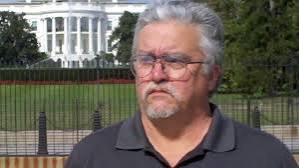The unexpected passing of Jazz Shaw, a prominent editor and writer for the popular political commentary site Hot Air, has left the journalism and political commentary community in deep sorrow. Known for his sharp wit, insightful analysis, and dedication to honest journalism, Shaw was a voice many relied on for thought-provoking insights into American politics.
His sudden departure has created an irreplaceable gap in media, and those who knew him, worked with him, or were touched by his work are paying heartfelt tributes to honor his life and legacy.
Jazz Shaw’s career as a writer and editor spanned over a decade, primarily at Hot Air, where he contributed to its reputation as a leading conservative commentary site. Shaw’s writing style was characterized by a careful balance of humor and insight, allowing him to tackle complex political issues in a way that felt accessible yet profound.
He wrote on a wide range of topics, from government policies and foreign relations to social issues and cultural trends. His ability to dissect topics objectively and provide readers with balanced perspectives set him apart in an era where partisanship often clouds clear judgment.
Jazz was deeply committed to journalistic integrity. His work reflected a dedication to providing accurate information while promoting healthy debate. He believed that journalism should inform rather than persuade, and he was known for his fair-minded approach. This approach allowed Shaw to gain a diverse readership and respect from colleagues across the political spectrum. His opinions were respected even by those who did not agree with him because they trusted his sincerity and dedication to truth.
Jazz Shaw’s contributions to Hot Air and the broader political commentary field were significant. His influence extended far beyond his role as an editor. Through his writing, Shaw fostered conversations about pressing issues and encouraged readers to think critically about the world around them.
He wrote on matters that were often controversial, yet he handled these subjects with respect and responsibility, always aiming to understand and present multiple perspectives. This approach earned him the loyalty of readers who valued his dedication to balanced discourse.
Many of Shaw’s articles were not only informative but also deeply personal. He often infused his commentary with stories from his own life experiences, connecting with readers on a human level. His willingness to be vulnerable and share his perspective on topics from the heart made him not just a writer but a relatable voice in an often impersonal media landscape.


